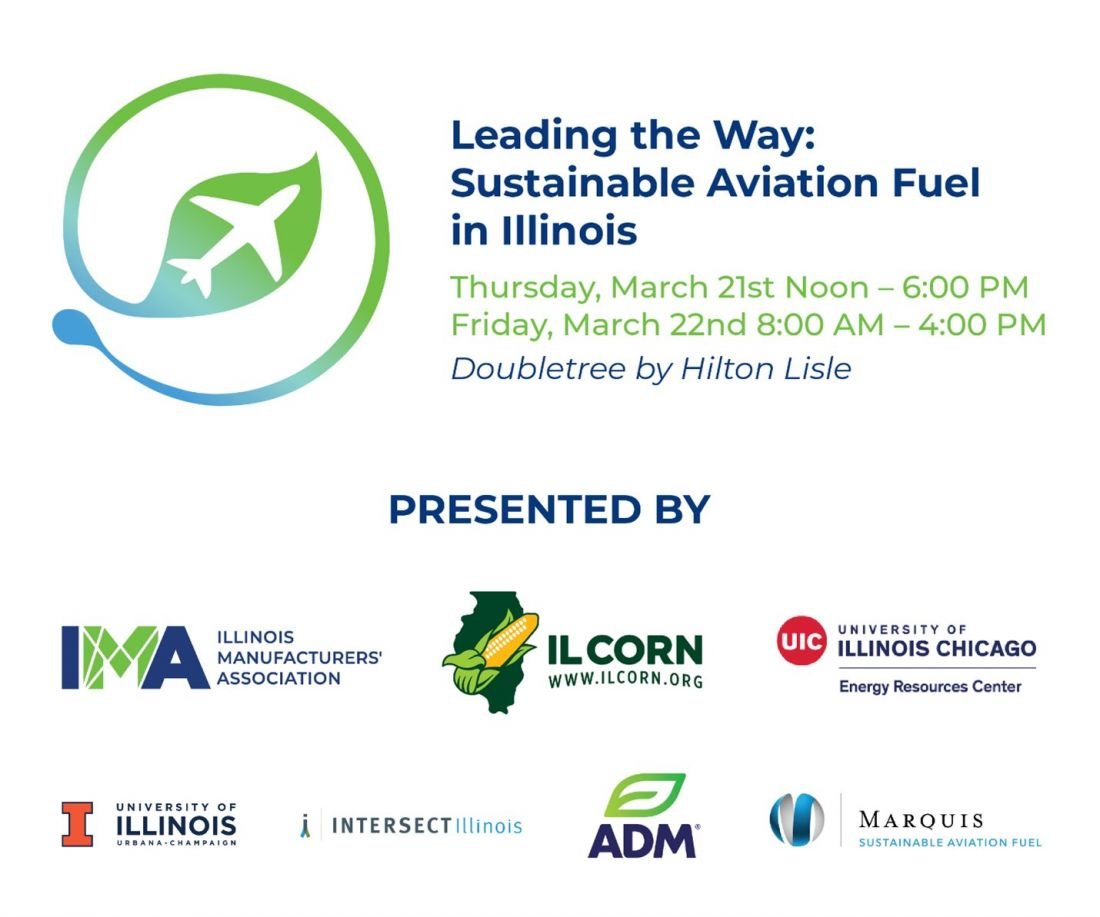
Join us for the inaugural Illinois Sustainable Aviation Fuel Conference, organized by key stakeholders in this space, for this discussion on the use of SAF in the U.S. and a chance to learn about unique opportunities this new initiative offers Illinois and the Midwest.
This two day event offers timely and valuable industry content, panels and keynotes addressing all aspects of SAF. Participants will network and learn from industry experts, agencies and public officials as we create a SAF ecosystem together after Illinois passed a first-in-the-nation tax incentive.
Experts and policy leaders will be highlighting the assets and resources that Illinois brings to SAF:
- Attracting jobs and investment
- SAF Demand & Logistics
- Federal & State Incentives
- SAF Producers
- Carbon Scoring
- Export Opportunities








